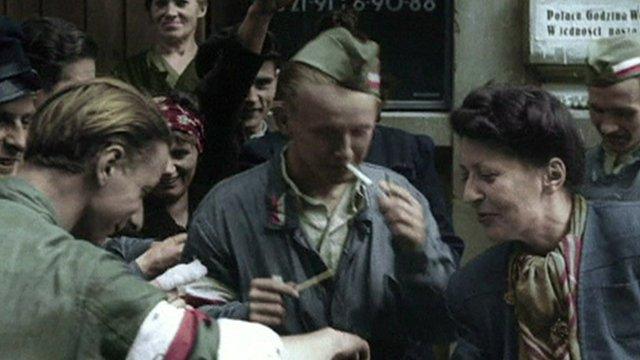Proud Polish veterans' Cenotaph march past
- Published
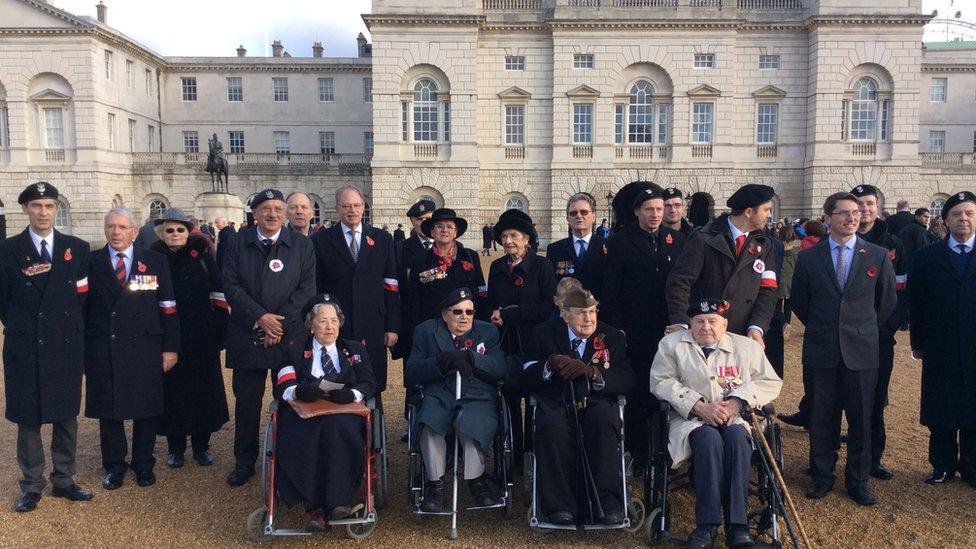
"I am 94, and this is the first time that I have marched past the Cenotaph in London on Remembrance Sunday," says Colonel Otton Hulacki.
It is hard to believe such an active, not to mention charismatic, World War Two veteran has never taken part in this poignant tradition in London.
It is definitely not because of a lack of personal involvement, far from it.
As a 17-year-old, Col Hulacki joined the Polish Underground Resistance and was captured and deported to Siberia.
There, he joined the Polish army set up by Gen Anders after Stalin agreed to the release of tens of thousands of Poles from Soviet camps.
Col Hulacki went on to see active service in the battles of Monte Casino, Ancona and Bologna.
After the War, like thousands of his countrymen and women, he could not return to a homeland controlled by the Soviet Union.
It is also not from a lack of interest.
Col Hulacki campaigns to keep his heritage alive in the UK.
He was instrumental in organising a memorial in Kingston Cemetery, Portsmouth, in memory of the UK's very first wave of Polish migrants.
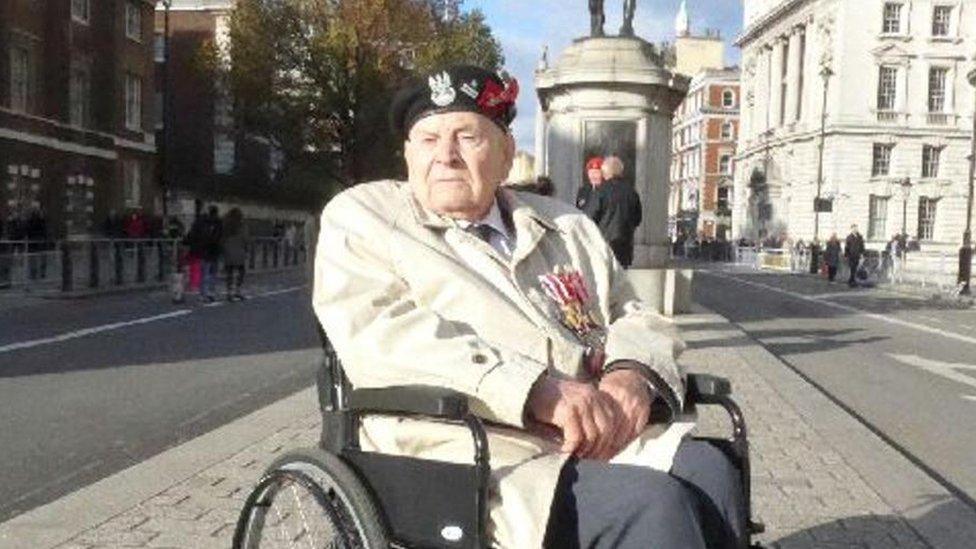
This year's march past is the first Col Otton Hulacki, 94, has attended
The UK's first Poles were 212 soldiers who made the British naval port their home in February 1834.
They had fled a Poland under Russian rule after taking part in the 1830-31 November Uprising against the tsar.
Col Hulacki helped establish a Polish language Saturday school in Portsmouth named after that uprising.
Even at the age of 94, he is busy planning the Isle Of Wight's upcoming 75th anniversary of the defence of Cowes by the Polish navy destroyer ORP Blyskawica.
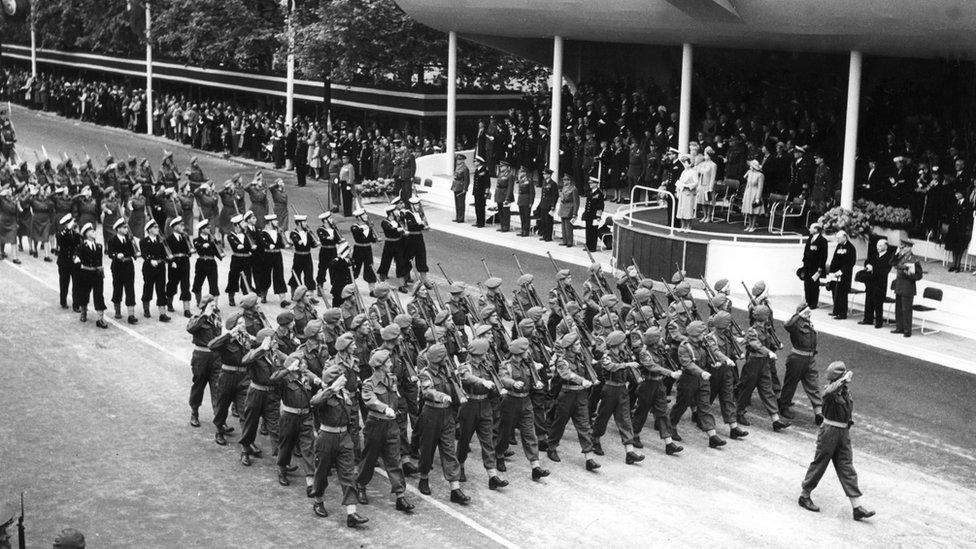
Polish personnel were not invited to the 1946 London Victory Parade
So why the absence?
"I was deeply saddened when we were not invited to the Victory Parade in 1946," he says.
"On Remembrance Sunday we remember those who lost their lives, and given how much the Poles lost in the Second World War, to then not have our losses and our contribution recognised, it really hurt."
Seventy years ago, the British government, under pressure from Stalin, did not invite the Polish forces who fought with the Allies to the Victory Parade in London on 8 June 1946.
They have since apologised, and in 2005 Poles took part in a British Victory Parade for the first time, marking the 60th anniversary of the end of World War Two.
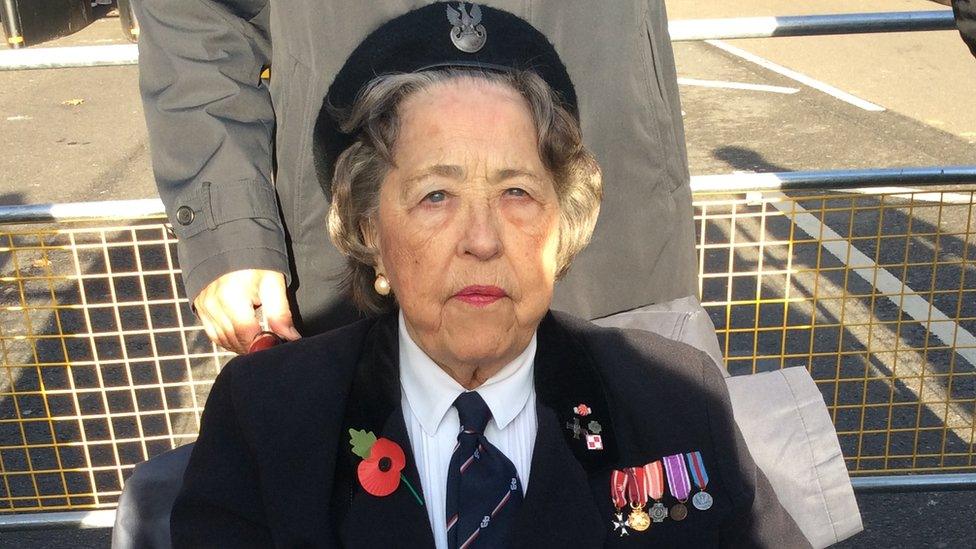
Marzenna Schejbal is a veteran of the 1944 Warsaw Uprising
For Col Hulacki it meant that, over the years, as he became increasingly involved in his own campaigning, he never made it to the Cenotaph - until now.
"I always marked Remembrance Sunday by laying wreaths on the Isle of Wight, where I now live. But this march past the Cenotaph is so much bigger," he says.
"When I saw the crowds, I was overwhelmed.
I found it fascinating, watching all these people lined up watching me.
"I didn't know what to do with myself. The rounds of applause were amazing. I felt so proud, so accepted."
Col Hulacki is one of four Polish veterans whose participation in the march past has been organised by The Friends of Polish Veterans Association, The Polish Heritage Society and The White Eagle Polish Club of History Enthusiasts.
Another is Marzenna Schejbal, who was just 20 during the Warsaw Rising, when the Polish Home Army unsuccessfully rose up against the Nazis in the capital in 1944.
She understands Col Hulacki's hurt feelings.
"The omission of the Poles from the Victory Parade was devastating," she says.
"I had heard of Polish pilots in tears watching the parade from the pavement."
Mrs Schejbal has been participating in Remembrance Sunday for 30 years.
"At the beginning the Polish contingent was made up of around 200 people," she says. "We are fewer now."
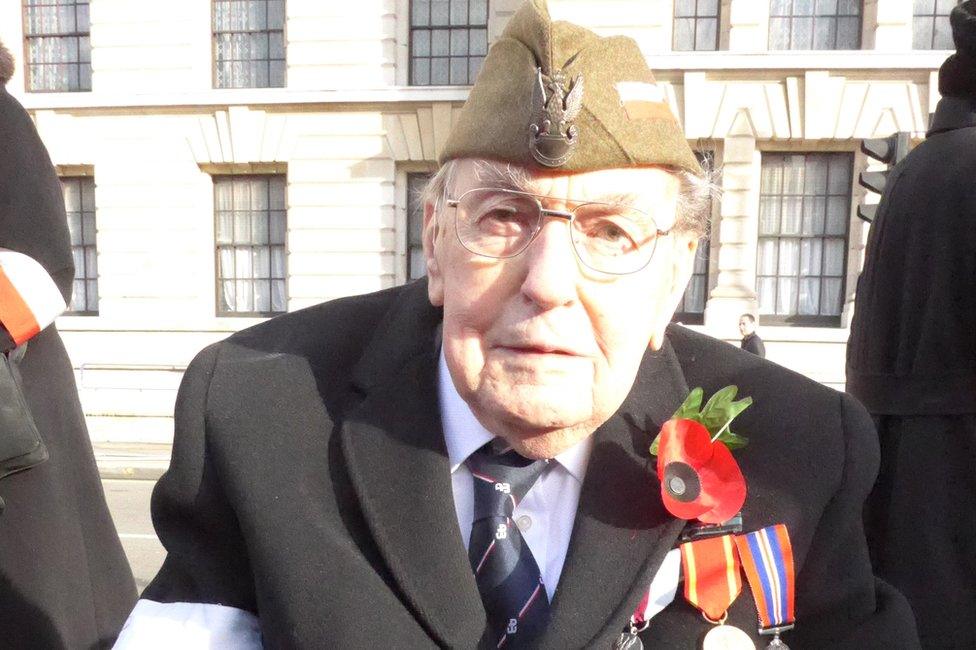
"It was exciting to hear all the cheers and applause," says Janusz Kacprzyk-Kent, who saw action in the Warsaw Uprising
"The atmosphere is wonderful, everyone is so friendly.
"While waiting for the columns to move off, we chat to one another, to other veterans who remember those times. They were very different times to now."
At 92, Mrs Schejbal stills works at keeping the past accessible.
"I am invited to schools to talk about the Warsaw Uprising," she says.
"I tell children, not much older than the ones who fought alongside me, about the conditions we faced during those 63 days.
"They cannot believe that we used the underground sewage system to get around the capital."
Mrs Schejbal used to run the Home Army Ex-Servicemen's Association.
Now, as the number of veterans still alive dwindles, she focuses her attention on documenting their past by setting up the Polish Underground Movement Study Trust, which has thousands of files relating to the resistance fighters.
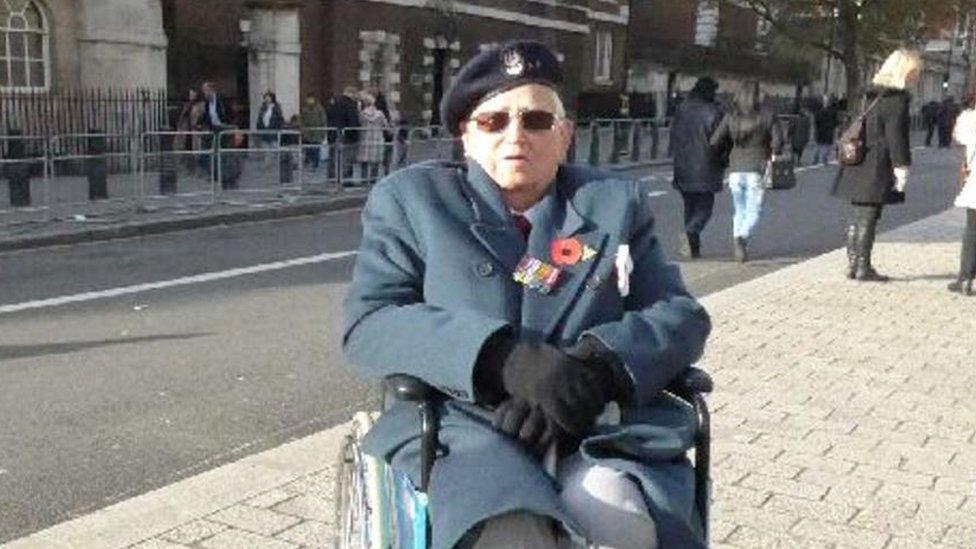
Zygmunt Tylunas served with the Polish Armoured Brigade in Normandy and Holland
Like Mrs Schejbal, Janusz Kacprzyk-Kent wears the white-and-red armband of the Polish Home Army.
He too is a veteran of the Warsaw Uprising and is emotional after marching by the Cenotaph.
"Today is for all those who didn't make it," he says.
An estimated 200,000 people lost their lives during those two months, in which many children took up arms.
"I didn't think people would recognise the eagle on my beret," Mr Kacprzyk-Kent says, gently touching the military insignia that represents the Polish armed forces.
"But the crowds were calling out. I could hear some calling in Polish. It was exciting to hear all the cheers and applause."
Lt Zygmunt Tylunas is the fourth Polish veteran taking part this year.
He served with the Polish Armoured Brigade in Normandy and Holland.
"My legs make it difficult for me to take part, but I wanted to be here," he says.
The Poles are led by Col Richard Ciaglinski, who served with the British army in Yugoslavia, and Col Michael Russell, a former commanding officer of Aldershot Barracks.
Col Russell has chosen to march in solidarity with the Polish veterans, saying: "The Poles were treated dreadfully by not being allowed to take part in the allied Victory Parade.
"We must treasure these veterans."
This Remembrance Sunday is sunny but crisp. There is a chill in the air.
But when asked if he is warm enough, Col Hulacki cheerfully fires back: "I was imprisoned in Siberia, today is not a cold day."
Related topics
- Published13 November 2016
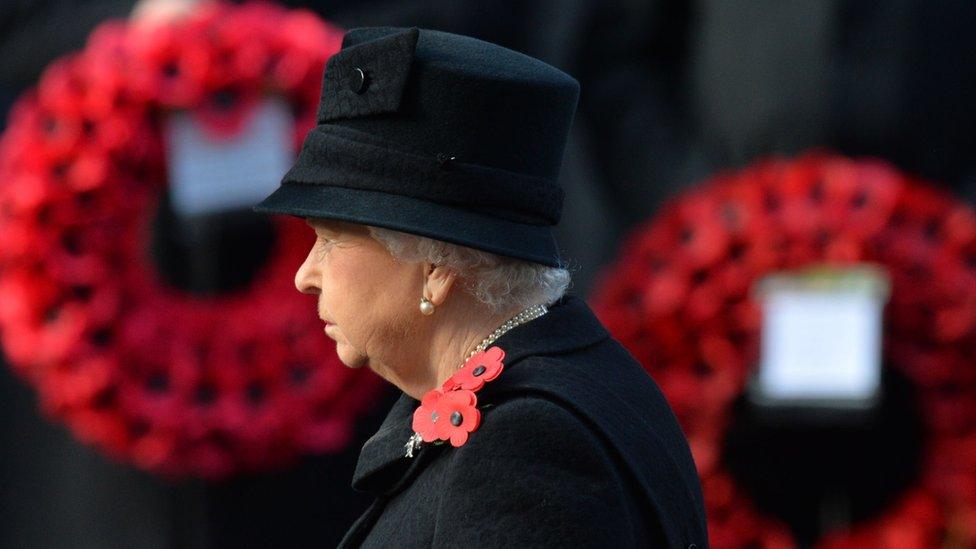
- Published21 August 2013
